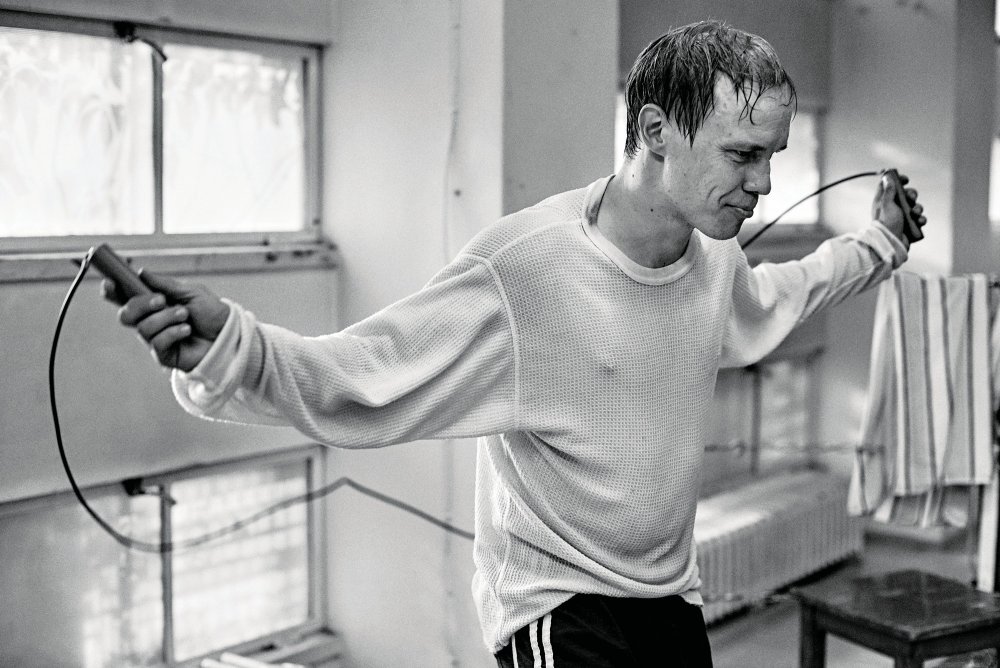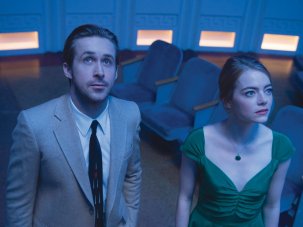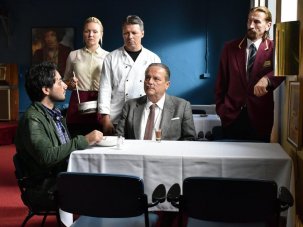Spoiler alert: this review reveals a plot twist
It’s not uncommon for films about talented individuals to position personal and professional fulfilment as sworn opponents. Fun and romance are drains on a prodigy’s training time; giving enough to one’s sport or artform means having little left for intimate relationships; the gifted person on whom domesticity is forced will buck, bend or burst its constraints. It’s the ultimately fatal quandary foisted on Vicky Page in The Red Shoes (1948) by the tyrannical impresario Lermontov, who tells her, “A dancer who relies upon the doubtful comforts of human love can never be a great dancer.” It’s the inevitable trajectory envisaged by young Andrew in Whiplash (2014) when he breaks up with his girlfriend Nicole: “I’m not gonna be able to spend as much time with you. And when I do spend time with you, I’m gonna be thinking about drumming… And because of that, you’re gonna start to resent me. And you’re gonna tell me to ease up on the drumming… And I’m not gonna be able to do that…”
Finland/Germany/Sweden/Norway 2016
Certificate 12A 92m 49s
Director Juho Kuosmanen
Cast
Olli Mäki Jarkko Lahti
Raija Jänkä Oona Airola
Elis Ask Eero Milonoff
Laila Ask Joanna Haartti
In Black & White
[1.85:1]
Subtitles
Distributor MUBI
Finnish theatrical title Hymyilevä mies
UK release date 21 April 2017 in regional cinemas
ollimakifilm.com
► Trailer
Though Nicole gives Andrew’s monologue on monomania short shrift (“You’re right: we should not be dating”), the notion of necessary sacrifice remains hard for movies to resist – perhaps because filmmaking makes its own disruptive demands; perhaps because audiences enjoy being reminded that the gifted, driven and garlanded get their own share of hardship. When love can be enjoyed, it’s because the lover is a proven boon to the gifted one’s progress – as when Rocky calls Adrian into his arms at the close of Rocky (1976), or when Micky Ward chooses to prioritise a supportive girlfriend over an overbearing momager in The Fighter (2010).
The Happiest Day in the Life of Olli Mäki bucks this convention with one bracingly simple suggestion: that finding, being with and caring for the person you love might be more important than running yourself ragged in pursuit of passing glory. The imprecise mythologies that cling around the cinematic portrayal of sport – the idea that suffering definitely, inevitably ennobles, the assertion that there’s inherent spiritual significance in being the best at something, the sense that winning at any cost is a finer goal than self-protection or the pursuit of happiness – are quietly shelved. Big romantic moments are underplayed as well: marriage is casually agreed on at a bus stop, wedding rings are purchased in a giddily informal rush.
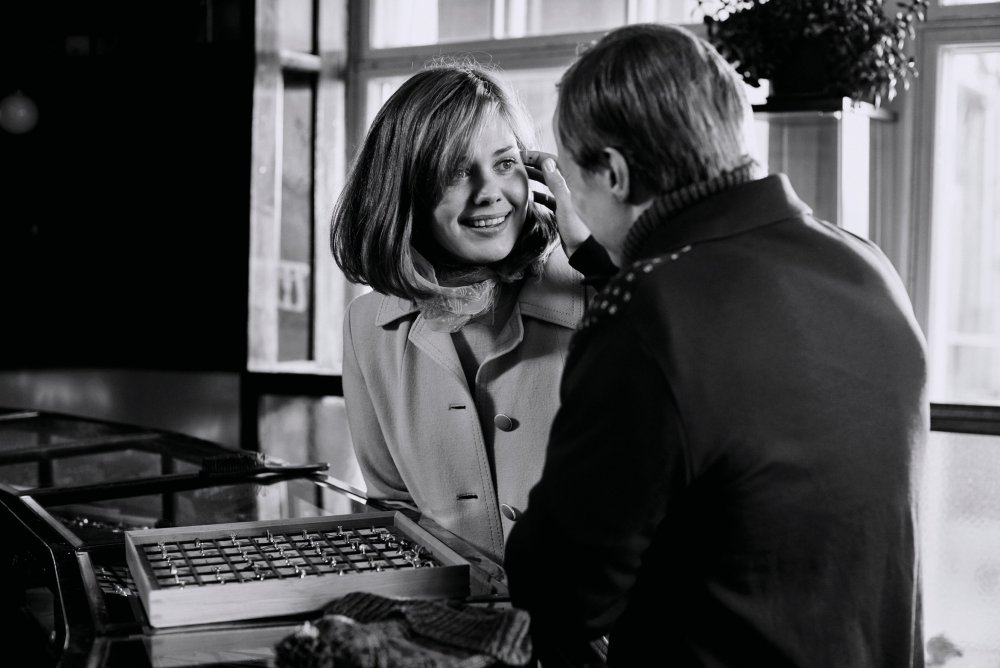
But where significance lies is unmistakable: not in the boxing ring, where Finnish champion Olli Mäki (Jarkko Lahti) fights for his country, nor at the press conferences where he’s pressured to play up to the media, but in the simple moments of connectedness that he shares with Raija (Oona Airola), the woman he loves. There’s something rare and quietly thrilling about the contention that a woman might fulfil a man not by backing his aspirations, tolerating his bad behaviour or giving him motherly pep talks, but simply by being herself. Male sporting bravado, meanwhile, keeps being hampered by conventionally feminine concerns: Mäki’s training regime involves not Eye of the Tiger heroics, but pressure to lose weight; his manager Elis (Eero Milonoff) loses some macho face when his wife makes him drag their small children with him to meet with the nation’s top boxing brass.
The film is based on biography: the real Mäki was born in 1936 and won the European lightweight title as an amateur; after being excluded from the 1960 Finnish Olympic squad, reportedly because of his leftwing political affiliations, he had a patchy professional career, culminating in a headline-grabbing bout with the American Davey Moore in 1962. It’s the lead-up to that match, for which Mäki had to downsize from lightweight to featherweight, that forms the basis for this film. The byzantine rules and machinations of professional sport come in for some cheerful ribbing (“How can feathers weigh more than bantams?” puzzles one of Mäki’s friends. “It doesn’t make any sense…”). But the main focus is on the delicate interplay of affections and rivalries between Olli, Raija and Elis.
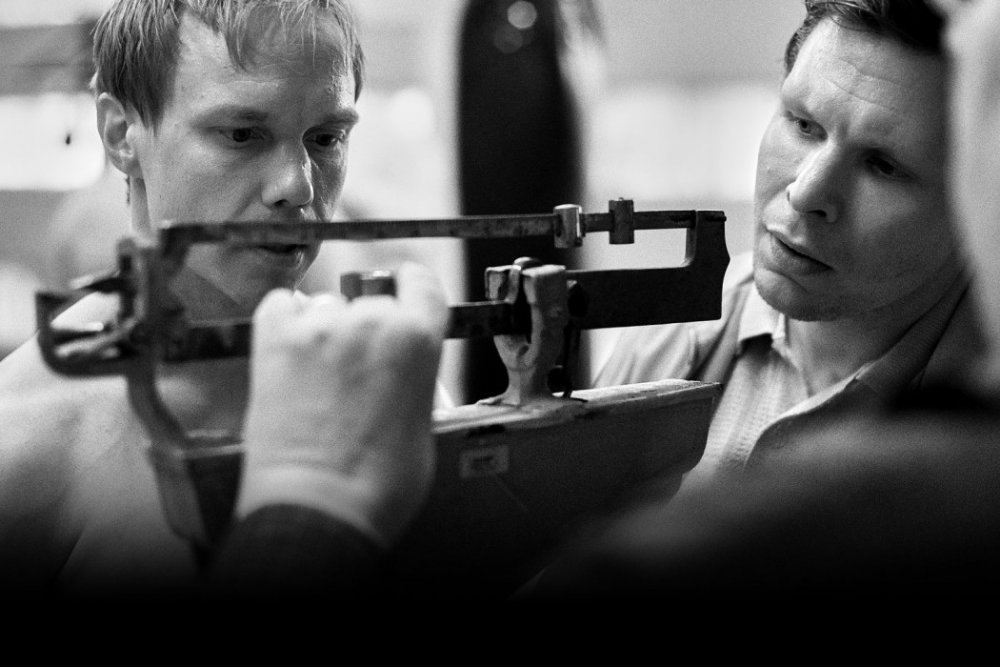
Though Lahti looks a little older than the twentysomething he’s playing, his careworn mien and tense posture befit the role well, evoking the increasing strain brought to bear on Mäki as a bout he doesn’t really want to fight becomes a publicity stunt for which he’s clearly not cut out (he’s even being followed by a documentary film crew, a neat metaphor for all the attention he’d rather avoid). Perhaps Elis, a former fighter himself, fancies a mentor/protégé bond with his charge and resents Olli’s obvious lack of reciprocal devotion; perhaps he’s jealous, or has a repressed crush; perhaps he’s just a bit of a bully. Whatever the spur, he pushes Olli into losing weight with a zeal that borders on the sadistic, and makes little secret of his resentment of Raija.
Raija, for her part, is a study in spontaneous goodness and non-manipulative self-possession. Having fallen in love with Olli, she instinctively sticks by his side as he prepares for his big match; but when she thinks she might be obstructing his progress, she unfussily absents herself. “How could you disappoint me?” she asks Olli as he suffers over his priorities. “I haven’t asked anything of you.” And she hasn’t, although her simple loyalty and the joy they take in one another are both made touchingly apparent. Shots of Raija watching Olli fight offer a wonderfully restrained account of managed turmoil: her body language expresses both the wrenching horror she experiences seeing him hurt, and her determination not to be a drag on his dreams or ambitions.
It’s an intriguing aspect of a distinctly low-key film that it takes greater interest in evoking the emotional context of Mäki’s fights than in attempting the sort of head-spinning, blood-spitting pyrotechnics generally enlisted to make boxing ‘cinematic’. Mäki’s crucial featherweight championship fight against Moore (John Bosco Jr) passes in a rush so confusing it’s not even apparent who has won (after taking several destabilising hits, Mäki is defeated on a technical knockout).
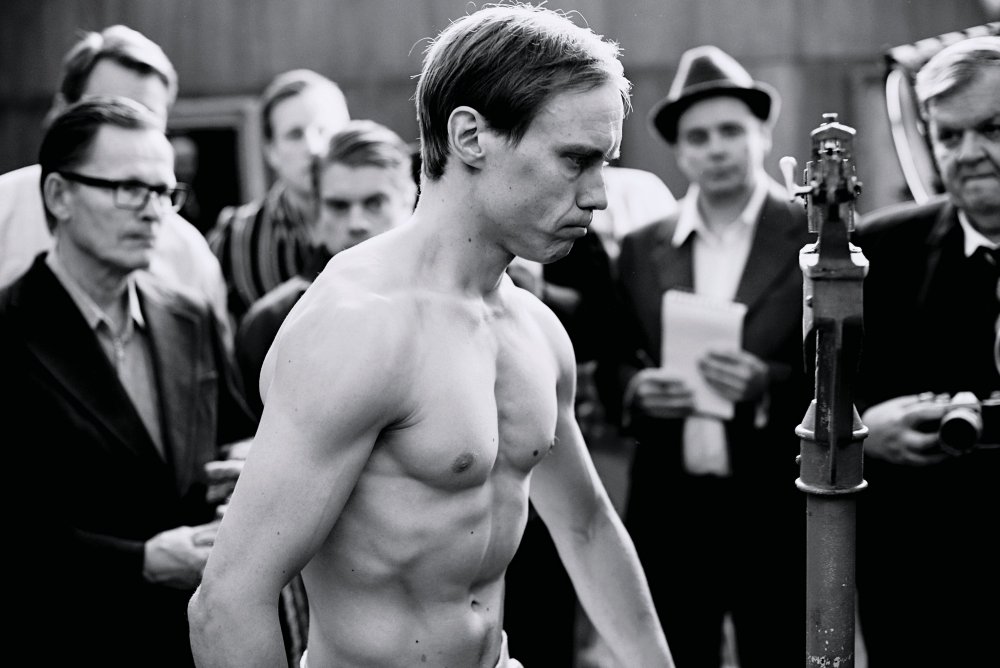
Much more intensely rendered is his dazed state afterwards: we see him in the changing rooms, awaiting an onslaught of reporters; befuddled; relieved; perhaps less hurt than he expected to be at the hands of the more experienced and confident Moore. “There wasn’t really time to feel anything,” he tells the newsmen when they come. “It happened so fast.” Far more important to him, we sense, is the fact that he has secured Raija’s hand in marriage; later, they will leave the pointlessly showy party arranged in honour of the fight in order simply to be together.
Black-and-white cinematography and terrifically precise attention to period hair, makeup and furnishings lend the film an almost unsettling level of authenticity: we might be watching a rediscovered relic from the early 1960s. An obvious comparison, in terms of the rejection of conventional measures of glory, is The Loneliness of the Long Distance Runner (1962), while cheerier examples of the British New Wave, such as A Taste of Honey (1961) and Billy Liar (1963), are also evoked by the film’s mix of social satire, eccentric humour and dizzy romance. But it is a less cynical and more upbeat exercise than those predecessors, not feeling the need to undercut or complicate the last of those elements.
Indeed, so strong is its faith in its own love story that it takes the risk of ending on a potentially cheesy note: we see the actors walk past the elderly, real-life Raija and Olli, the sight of whom fuels their hope to grow old together.
-
Sight & Sound: the May 2017 issue
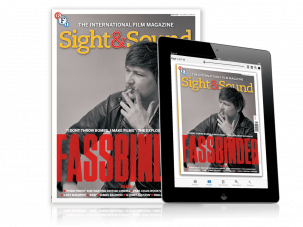
The explosive genius of Rainer Werner Fassbinder: a 14-page tribute. Plus Lady Macbeth, Raw and cannibalism on film, James Baldwin, Their Finest...
-
The Digital Edition and Archive quick link
Log in here to your digital edition and archive subscription, take a look at the packages on offer and buy a subscription.




